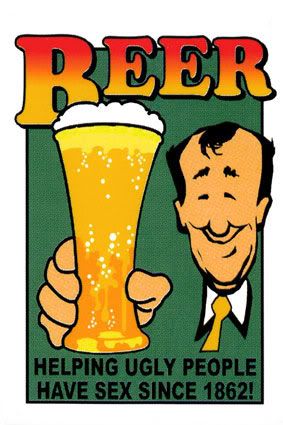
A friend of mine just sent me an article from the August 27 issue of the National Review about Paul McCartney entitled "The Bard of Optimism," by Kyle Smith. The article falls into one of the sadder conflicts of modern music history, the seemingly inevitable John or Paul argument.
Lennon’s assassination in 1980 would sadly prove to be a staggering blow to McCartney’s musical reputation. Lennon, after five years of silence, had in Double Fantasy just released his strongest work in years. Meanwhile, McCartney was entering one of his tougher creative periods, which would see him release a number of shallow songs like "Press" and "Spies Like Us," as well as an ill thought re-recording of his previous Beatles material for the movie Give My Regards to Broadstreet. This period seemed to show an artist in decline.
The truth is that McCartney was thrown into an impossible situation, where he found himself and his reputation competing with a much loved, now martyred legend. John Lennon's death perhaps saved him from the decline even the greatest artists of the '60s like Bob Dylan found themselves in as they entered the third decade of their career. John Lennon would never write a great song again, but he also would never write a horrible one either.
The early innocence of the Beatles is what we want to remember. The one that saw John and Paul agree to credit all their song compositions as Lennon/McCartney even though they for the most part stopped writing as a real team very early in their careers. Nevertheless, the partnership remained healthy for a long time, both as a competition that spurred the two to produce great work, and as a sounding board.
This saw such musical moments as when Lennon muted the optimism of McCartney’s "We Can Work It Out," with a pessimistic bridge, and McCartney’s addition of the middle section of "A Day in the Life." It was the sort of musical partnership where even just a friendly reassurance - like the time Lennon assured McCartney, that the line “the movement you need is on your shoulder” in "Hey Jude" was indeed worth keeping - helped to make Lennon and McCartney the historic songwriting team they were.
Sadly, things got ugly.
The death of Brian Epstein left a void of leadership right at the time when Lennon met Yoko Ono. Lennon’s interest in the band began to flag, and McCartney’s perhaps understandable response was to try to take on a role of leadership, pushing the group into the disastrous Magical Mystery Tour project as well as earning the enmity of his three band mates, who suddenly felt like side men. You can see just how bad this got in the film Let It Be, where an enraged and fed up George Harrison tells McCartney acidly that he’ll play whatever Paul wants or indeed perhaps nothing at all.
Money of course always makes things worse. As Apple, the group's idealistically naïve business project, started to bleed money, Lennon, Harrison, and Starr chose Allen Klein as their new manager, overruling McCartney, who probably rightly preferred his father-in-law Lee Eastman. It was a fracture that the group never recovered from. McCartney wound up suing his band mates and announcing that he had left the group, leaving Lennon enraged.
The Lennon/McCartney myth took a huge hit in the ‘70s, mostly from Lennon, who, in a historic interview with Jann Wenner of Rolling Stone, divvied up specific credit for nearly every Beatles composition. Lennon similarly declared in "God" that “The dream is over,” and “I don’t believe in Beatles.” Lennon than put an exclamation point on it with the acidic, vitriolic, and incredibly mean anti-McCartney rant "How Do You Sleep," which in true contradictory Lennon fashion appeared on the same album as his utopian classic "Imagine."
Things between John and Paul appeared to be thawing in the late ‘70s. Indeed, in Lennon’s last interviews he regained his love for the Beatles and what they had accomplished. Lennon also acknowledged that he had only had two true partners in his life, Paul and Yoko, and that he had chosen them quite well. His death ended this thawing, and left us with the endless John or Paul debates indicative of Smith’s latest flurry in the National Review.
Admittedly, time has been incredibly unfair to McCartney. Lennon has been cast as a genius while some would toss McCartney to the heaps as just a sunny schlock merchant. It’s stuck in McCartney’s groin so much that he released a live album, where he reversed his Beatle songwriting credits so they appeared as McCartney/Lennon, and got into a much publicized failed dispute with Yoko Ono, where he insisted that his song "Yesterday" be officially credited similarly.
Smith’s defense of McCartney, though of course goes way too far, as if the only way to rebuild McCartney’s reputation is to take a swing at Lennon’s. Smith writes that “Paul McCartney was not only a genius, but the genius: the most essential member of the undisputed best musical group, the author of a huge volume of brilliant post-Beatles work … in short, the most monumental figure in pop music.”
He goes on to claim that “starting in 1966, as the Beatles were graduating from ditty merchants to transformation force, every album contained more top-level McCartney compositions than Lennon ones. The first side of Sgt. Pepper, for instance contains seven classic songs – five written by McCartney. Let It Be contains three McCartney greats and one be Lennon. And so on.”
This is just sheer nonsense. Choosing Let it Be, the group's final album (if it even was a group at this point) as starting point is absurd. While, Sgt. Pepper is perhaps a McCartney-led opus, trumpeting "Getting Better" and "Fixing a Hole" as classics is a weak argument. It is also one which ignores that it was Lennon’s addition of “can’t get no worse,” and the uber-honest line “I used to be cruel to my woman, I beat her and kept her away from the things that she loved,” that saved "Getting Better" from being overly lightweight.
"Lucy in the Sky with Diamonds" is hardly a song to be ignored, and the stone cold masterwork “A Day in the Life” was for the most part a Lennon composition. Smith seems to imply that Lennon’s edgy material on Revolver, as well as compositions like "All You Need is Love," "Strawberry Fields Forever," "I Am The Walrus," "Revolution," and his numerous brilliant compositions on the White Album, don’t exist. In truth, Lennon was producing great songs, but they were too experimental, challenging, or contrary for A-side status, which was routinely left for McCartney’s more pop confections.
Smith writes that “McCartney – unpretentious, industrious, determined, responsible, devoted to his family, undistracted by fads or marches – is driven to create beauty out of suburbia (“Penny Lane”), his mother’s death (“Let It Be”), or Lennon’s murder (the 1982 ballad “Here Today”). He approaches his calling the way true artists do: as a job.”
The last line about artists treating their work as a job makes my skin crawl. The rest is just an inane attack on Lennon, who wrote an equally beautiful song about suburbia (“In My Life”) years earlier. In fact, the companion song to "Penny Lane," Lennon’s "Strawberry Fields Forever," takes the same subject, but is infinitely more complex and revolutionary, both lyrically and musically. Lennon also wrote about his mother’s death in the beautiful "Julia," and the haunting, disturbing "Mother." The fact that he wrote no song about his own murder can hardly be held against him. Do we really need to tear down one great artist to boost another?
It gets worse. Smith calls brave, great songs like "God" and "Working Class Hero" “silly hate songs,” a premise so absurd it needn’t even be dealt with. He cites National Lampoon's mockery of Lennon as proof that he was off his rocker (it’s funny and has some truth, but my guess is that not even its author Christopher Guest would agree). Smith also completely ignores Lennon’s album Imagine, which besides the title track contains the beautiful and heartbreakingly honest "Jealous Guy."
Here’s the funniest stab at Lennon from Smith: “Lennon may have been a professional outlaw who wrote "Attica State," but McCartney is the one who actually did time – nine days in Japan in 1980 after a pot bust.” This is an incredibly odd and facile argument from someone who celebrates McCartney’s polished home life over Lennon’s agony and rabble rousing. It also ignores the fact that Lennon was targeted by Richard Nixon and the FBI, and had to fight deportation hearings for years (due to the politicization of an earlier Lennon pot bust).
Smith goes on to laud McCartney’s recent work, which is fine, but one has to recognize the following: 1) McCartney wrote many of his finest recent songs when he had a Lennon figure like Elvis Costello to work beside, 2) much of that recent work has been spurred by his own sense of mortality in response to the death of his wife Linda.
The underlying thesis of the article, though, is that Smith hates Lennon’s politics. I suppose he has a right to. But what can’t be denied is that as a political songwriter and sloganeer McCartney, even when he has tried, can’t hold a candle to Lennon. McCartney’s response to 9/11, "Freedom," for example, was a pathetic and embarrassing composition.
By contrast, Lennon’s great strength was as a sloganeer and an organizer. "All You Need is Love," "Revolution," "Come Together," "Give Peace a Chance," "Imagine," "Gimme Some Truth," and "Instant Karma" are unmatched in their love, compassion, and righteous anger. A song like "Freedom" was out of McCartney’s league, and despite his good intentions, only added fuel to the fire of his most vocal critics.
In the end, though, let’s put this inane rap battle to rest. The Lennon/McCartney partnership was something that has made us all better, more fulfilled people. Choose your favorite if you will, but let’s stop tearing down the one to laud the other. There’s plenty of other crap out there to rail against. Indeed as Paul said, perhaps we should just “Let It Be.”















No comments:
Post a Comment